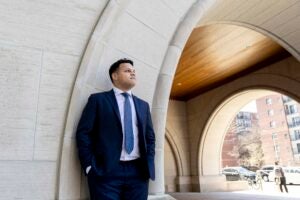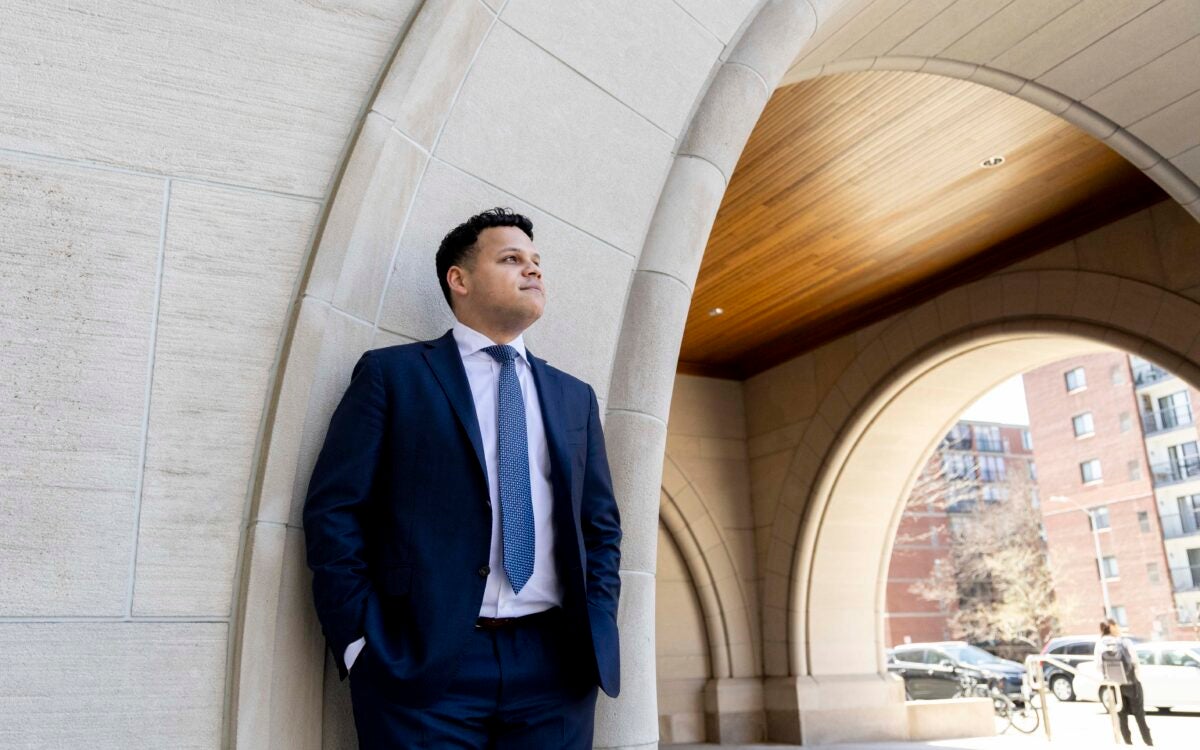Former homeless man takes part in Harvard Business School seminar
When Ron Brummitt emerged from the Harvard Square subway stop on a recent summer morning he was met by some of the area’s sadly familiar fixtures: homeless adolescents looking for a handout.
Though he was on his way to the Harvard Business School (HBS) across the river, Brummitt took time to stop and talk with the group of three teens. Refusing to give them money, he escorted them instead to a nearby convenience store, where he bought them something to eat.
Before leaving, the fit-looking 54-year-old asked one of them why they were there. “What is it to you, sir?” the teen replied. Brummitt’s response was brief.
“I was on the streets,” he told him; “You don’t have to be on the streets.”
As a boy growing up in Florida, Brummitt’s abusive, “out of control” parents shattered his childhood. Later, drugs and alcohol led him to a life of addiction and crime.
“Drugs will take you farther than you ever want to go,” he said, “and will keep you there longer than you ever thought was possible.”
Eventually homeless, he landed at the doorstep of the Miami Rescue Mission one night in 1990, seeking refuge from a drug supplier he couldn’t pay.
The decision changed his life. Brummitt stayed at the homeless shelter, entered a detoxification program, went straight, and ultimately straight to the top of the organization. He has been the Miami Rescue Mission’s president and CEO since 2007.
Brummitt, who has a degree in psychology and is an ordained minister, was at Harvard in July to take part in Strategic Perspectives in Nonprofit Management, a weeklong, HBS seminar that aids senior executives from the nonprofit sector in developing leadership strategies.
Participants review cases – specific examples of conflicts or problems taken from the real nonprofit world – with an HBS instructor and explore possible solutions. In addition to class discussions, they meet frequently in small group sessions with their peers to talk about the particular challenges they encounter in their line of work.
This year the program, which was developed in 1994, had its biggest enrollment to date with 156 executives from 20 different countries.
“In my view, this sector has the hardest problems, the least resources, and the least structural help in achieving high performance,” said Herman B. “Dutch” Leonard, Eliot I. Snider and Family Professor of Business Administration at HBS and George F. Baker Jr. Professor of Public Management in the Kennedy School of Government. “The vision and excellence in this sector has to come from its organizations’ leaders.”
Throughout the week, participants discuss a wide range of topics, said Leonard, including ways to develop and implement strategic visions, navigate the struggling economy and work with increasingly limited resources, and engage with their employees about the challenges they face. Participants also leave the campus with a robust network of peers in the nonprofit sector.
“We hope we are arming them for a wider engagement within their organization … but it’s a dance they are involved in, not a battle, and we are trying to prepare them for that larger dance,” said Leonard, chair of the program for the last five years, who praised the groups’ commitment and dedication.
“It’s an inspiration for us to have a chance to work with them.”
Brummitt said he plans to use his Harvard experience in part to develop better training for his staff, re-examine ways to reach specific goals established by his board of directors, and explore other areas of growth for his organization.
“You can read books about nonprofit management, but to come [to Harvard] … and then to be able to take back maybe two or three things I can do right away, implement right away [is invaluable]. … This has been a different, unique type of learning experience.”
Brummitt also praised the talent and devotion of his peers in the program.
“There’s a lot of people in the world,” he said, “who want to do a lot of good.”




